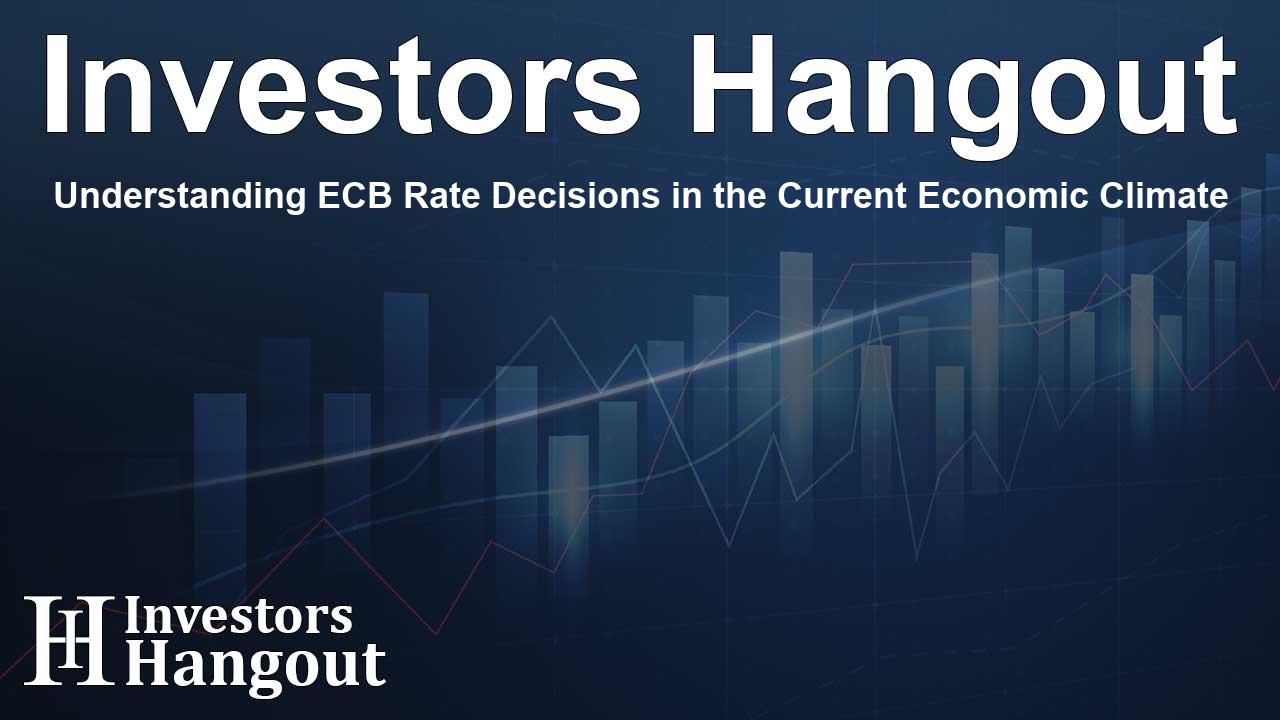Understanding ECB Rate Decisions in the Current Economic Climate

Understanding the European Central Bank's Rate Policies
The European Central Bank (ECB) faces significant challenges as it navigates the complexities of interest rate adjustments in today's economic environment. ECB policymaker Robert Holzmann recently emphasized that the bank cannot afford to lower rates quickly due to persistent issues, notably high core inflation.
Challenges in Rate Adjustments
In a recent statement, Holzmann voiced concerns about the current economic situation, asserting, "I don't think we can go down as straight as it is." He pointed out that with core inflation lingering close to 3%, the ECB has substantial hurdles that need to be addressed before considering rate cuts.
The Impact of Core Inflation
Core inflation has proven to be a stubborn element in the economic landscape. Holzmann's remarks highlight the reality that while overall inflation might fluctuate, core inflation—stripping out volatile items like food and energy—remains a crucial metric. With current figures hovering near 3%, the ECB must tread carefully in its decisions, as high inflation can significantly impact economic stability.
Energy Challenges Affecting Policy
Another pivotal challenge mentioned by Holzmann is the issue of energy prices. As energy costs remain volatile, the ECB's strategy must take into account how these factors influence inflation and overall economic growth. Stabilizing energy prices is integral to achieving a balanced economic environment conducive to favorable monetary policy.
Data-Driven Decision Making
Holzmann firmly stated that future rate decisions will depend heavily on the available data at the time of the decision. This data-driven approach underscores the ECB's commitment to adapting its policies responsively rather than hastily implementing changes based on incomplete assessments.
Conclusion: A Cautious Approach Moving Forward
The ECB's cautious stance on rate adjustments reflects a broader understanding of economic complexities. As Holzmann indicated, a careful approach that considers inflation trends, energy price stability, and accurate data will be essential for the ECB's forthcoming decisions. Stakeholders await more clarity from the ECB as the economic landscape continues to evolve.
Frequently Asked Questions
What did Holzmann say about lowering interest rates?
Holzmann emphasized that the ECB cannot lower rates too quickly due to persistent core inflation and challenges related to energy prices.
Why is core inflation important for the ECB's decisions?
Core inflation, which excludes volatile food and energy prices, serves as a crucial measure of overall inflation pressures, influencing monetary policy decisions.
What factors did Holzmann mention that affect economic stability?
Holzmann pointed to high core inflation and volatile energy prices as significant factors impacting economic stability and the ECB's rate policies.
Will the ECB make decisions based on future data?
Yes, Holzmann stated that future rate decisions will rely heavily on the relevant data available at the time of those decisions.
What is the ECB's overall goal regarding interest rates?
The ECB aims to maintain economic stability and manage inflation effectively while making informed and data-driven rate decisions.
About The Author
Contact Kelly Martin privately here. Or send an email with ATTN: Kelly Martin as the subject to contact@investorshangout.com.
About Investors Hangout
Investors Hangout is a leading online stock forum for financial discussion and learning, offering a wide range of free tools and resources. It draws in traders of all levels, who exchange market knowledge, investigate trading tactics, and keep an eye on industry developments in real time. Featuring financial articles, stock message boards, quotes, charts, company profiles, and live news updates. Through cooperative learning and a wealth of informational resources, it helps users from novices creating their first portfolios to experts honing their techniques. Join Investors Hangout today: https://investorshangout.com/
The content of this article is based on factual, publicly available information and does not represent legal, financial, or investment advice. Investors Hangout does not offer financial advice, and the author is not a licensed financial advisor. Consult a qualified advisor before making any financial or investment decisions based on this article. This article should not be considered advice to purchase, sell, or hold any securities or other investments. If any of the material provided here is inaccurate, please contact us for corrections.
